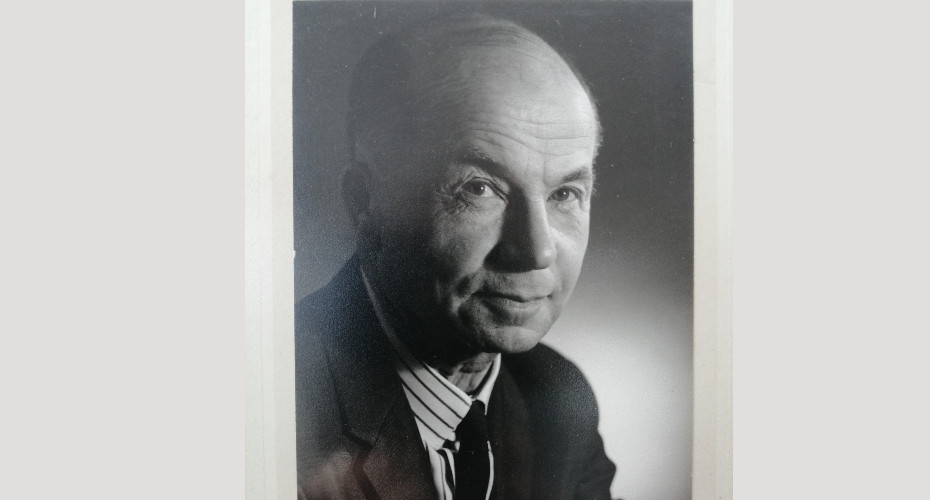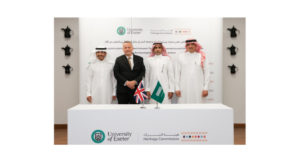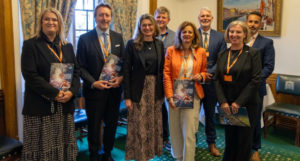South West pupils mark Holocaust Memorial Day at University of Exeter

Rosemary's father Robert Schonfeld
Pupils from Devon and Cornwall marked Holocaust Memorial Day by hearing about the horrors of the genocide from experts and the granddaughter of a Holocaust victim.
A member of the ‘second generation’, Rosemary Schonfeld, whose uncles and grandparents were murdered in Auschwitz, told her family’s story during the event, designed to show how the lessons of the Holocaust are more relevant than ever today.
University of Exeter experts shared their research into the Holocaust with pupils from Teignbridge Community School, Ivybridge Community College and Camborne Science and International Academy.
Rosemary, now based in Devon, is the daughter of a Czech immigrant who came to England after the Holocaust. She grew up unaware her father was Jewish. As an adult she started tracing the story of her relatives and learned more about the deaths of her uncles and grandparents, as well as their role in the Czech resistance. She tracked down Relly, who had been married to her father’s brother and survived Auschwitz.
As well as sharing her story Rosemary helped pupils understand the changing geography of Europe after World War One and the part that played in Jewish migration across the continent, as well as Hitler’s invasion of Czechoslovakia.
After surviving the Holocaust Relly married and raised her family in Israel and Australia. Rosemary visited her on many occasions, when she was welcomed as a long-lost niece, and this had a significant impact on her life. The conversations helped Rosemary understand what happened to her family.
Rosemary said: “I grew up not knowing my father was Jewish, he didn’t discuss the past with his family because he dealt with his trauma by looking forward, not back. I hadn’t even seen a picture of my grandmother until 2018. When information became easier to find in the 1990s I found Relly, who was an exceptional person. After the Holocaust she had a happy life.
“Many Holocaust survivors are too traumatised to speak about their experiences. Relly felt able to do so and the impact of what happened to her stayed with her forever.”
The conference was organised by school outreach staff at the University of Exeter and Barnabas Balint, from the University of Oxford, who researches the legacy and impact of the Holocaust. Barnabas, who began the event when he was an Exeter student, spoke about its importance in the wake of rising incidents of antisemitism in the UK.
Barnabas said: “The theme for Holocaust Memorial Day 2024 is ‘The Fragility of Freedom’. This year’s theme is particularly poignant given the recent and unprecedented rise in antisemitism here in the UK.”
“As increasing levels of polarisation and violence continue to impact our world, Holocaust Memorial Day is an opportunity to learn lessons from the past and take steps to challenge hatred and persecution.”
Dr Lucinda Fenny spoke about the Holocaust in cinema, Dr Nicholas Terry about documenting the Jewish experience in Poland and Dr Nigel Pleasants on the Holocaust, genocide and society. Barnabas presented his research on discovering the lives of victims and survivors of the Holocaust and genocide.



